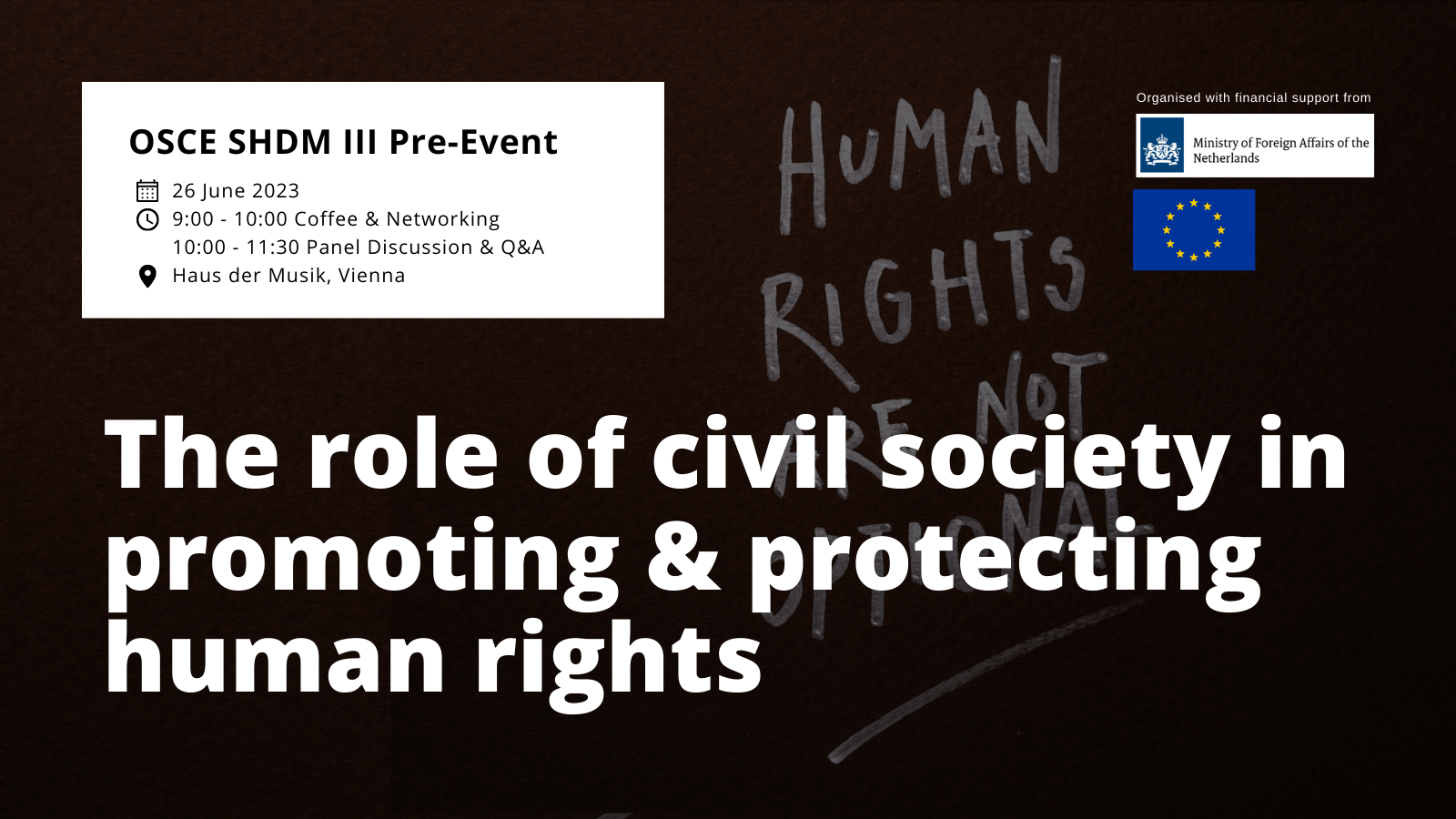
Across the OSCE region, human rights defenders and civil society organisations are facing new policies and mechanisms which limit their ability to express opinions, form associations, peacefully assemble, access information and funding, and be protected and appreciated as agents of positive change and development.
Authorities in many countries view the work of HRDs and civil society organisations as a threat to established power structures and consider them as their opponents, rather than allies. In some countries of the OSCE region, the ill-informed traditional values narrative is used by the authorities to accuse HRDs and civil society organisations of working against national interests. In a few particularly troubling instances, human rights work has largely been criminalised with HRDs forced to flee their homes or face tremendous risk in staying and NGOs forced to shutdown.
Lasting human rights gains can be achieved when a strong and independent civil society is able to freely contribute, alongside other human rights stakeholders, to the promotion and protection of human rights at home and abroad.
This pre-event will explore this topic in the context of the OSCE region, offer recommendations to participating States to strengthen support to independent civil society in times of crisis and consider the role that the newly inaugurated Special Representative of the Chairperson-in-Office on Civil Society should play to enable civil society.





